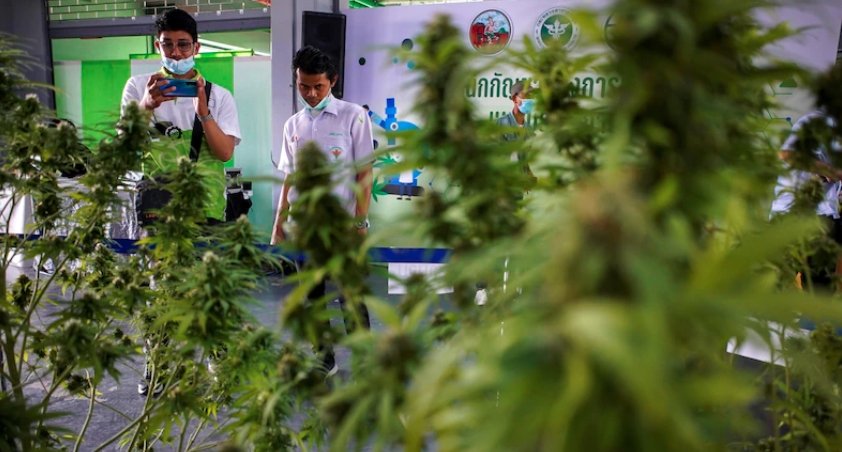Thailand’s new government is facing a wave of lawsuits from cannabis businesses and activists who are challenging its decision to reverse the legalization of the plant for recreational use. The move, announced in January, has sparked outrage and confusion among the cannabis community, who accuse the government of ignoring the benefits of the industry and violating human rights.
Cannabis Legalization: A Brief History
Thailand was the first country in Southeast Asia to legalize cannabis for medical and recreational purposes in June 2022, under the previous government led by Prime Minister Prayut Chan-o-cha. The decision was hailed as a progressive and pragmatic step, as it opened up new opportunities for farmers, entrepreneurs, and consumers. According to the Thai Chamber of Commerce, the cannabis industry could have been worth $1.2 billion by 2025.
The legalization also reflected the cultural and historical significance of cannabis in Thailand, where it has been used for centuries as a medicine, food, and textile. Cannabis was widely available and tolerated until it was banned in 1934, following international pressure. Since then, cannabis users have faced harsh penalties, including imprisonment and death sentences.
Cannabis Reversal: A Controversial Move
The cannabis legalization was short-lived, however, as the new government led by Prime Minister Srettha Thavisin announced its intention to ban cannabis for recreational use, just 18 months after it was decriminalized. The government proposed a bill that would restrict cannabis use to medical purposes only, and reintroduce strict penalties for possession and consumption, such as fines and jail terms. The bill also classified cannabis extracts containing more than 0.2% of THC, the psychoactive component of cannabis, as narcotics.

The government justified its policy reversal by citing concerns over the increase in recreational cannabis use, especially among young people, and the lack of clear regulations and quality control. Health Minister Cholnan Srikaew said the purpose of the law was to rectify the “wrong usage of cannabis” and to protect public health and morality.
Cannabis Lawsuits: A Legal Challenge
The government’s cannabis u-turn has provoked a strong backlash from the cannabis industry and civil society, who claim that the move is unjustified, irrational, and unconstitutional. They argue that the government is ignoring the economic, social, and environmental benefits of cannabis, as well as the human rights of cannabis users and growers.
Several lawsuits have been filed against the government, challenging the legality and validity of the bill. One of the lawsuits, filed by the Future Cannabis Network, a group of cannabis activists and entrepreneurs, claims that the bill violates the constitution, which guarantees the right to health, life, and liberty. The lawsuit also accuses the government of acting in bad faith, as it did not consult with the stakeholders or conduct a proper impact assessment before drafting the bill.
Another lawsuit, filed by the Thai Cannabis Corporation, a leading cannabis company, seeks to invalidate the bill and demand compensation for the damages caused by the government’s policy change. The company claims that it invested over $100 million in the cannabis industry, based on the previous government’s assurances and incentives, and that it stands to lose everything if the bill is passed. The company also argues that the bill is discriminatory, as it favors foreign and pharmaceutical companies over local and organic producers.
Cannabis Future: An Uncertain Outlook
The fate of the cannabis industry and the cannabis lawsuits in Thailand remains uncertain, as the bill is still pending in the parliament, and the legal process could take months or years to resolve. The government has indicated that it will not backtrack on its decision, and that it will only allow cannabis use for medical purposes, under strict supervision and regulation. The government has also assured that it will protect the rights and interests of the existing cannabis businesses and growers, as long as they comply with the rules and register with the authorities.
However, the cannabis industry and civil society are not giving up their fight, and they are mobilizing public support and international solidarity to oppose the bill and defend their rights. They hope that the courts will rule in their favor, and that the government will reconsider its stance and embrace the cannabis industry as a source of innovation, development, and well-being.



